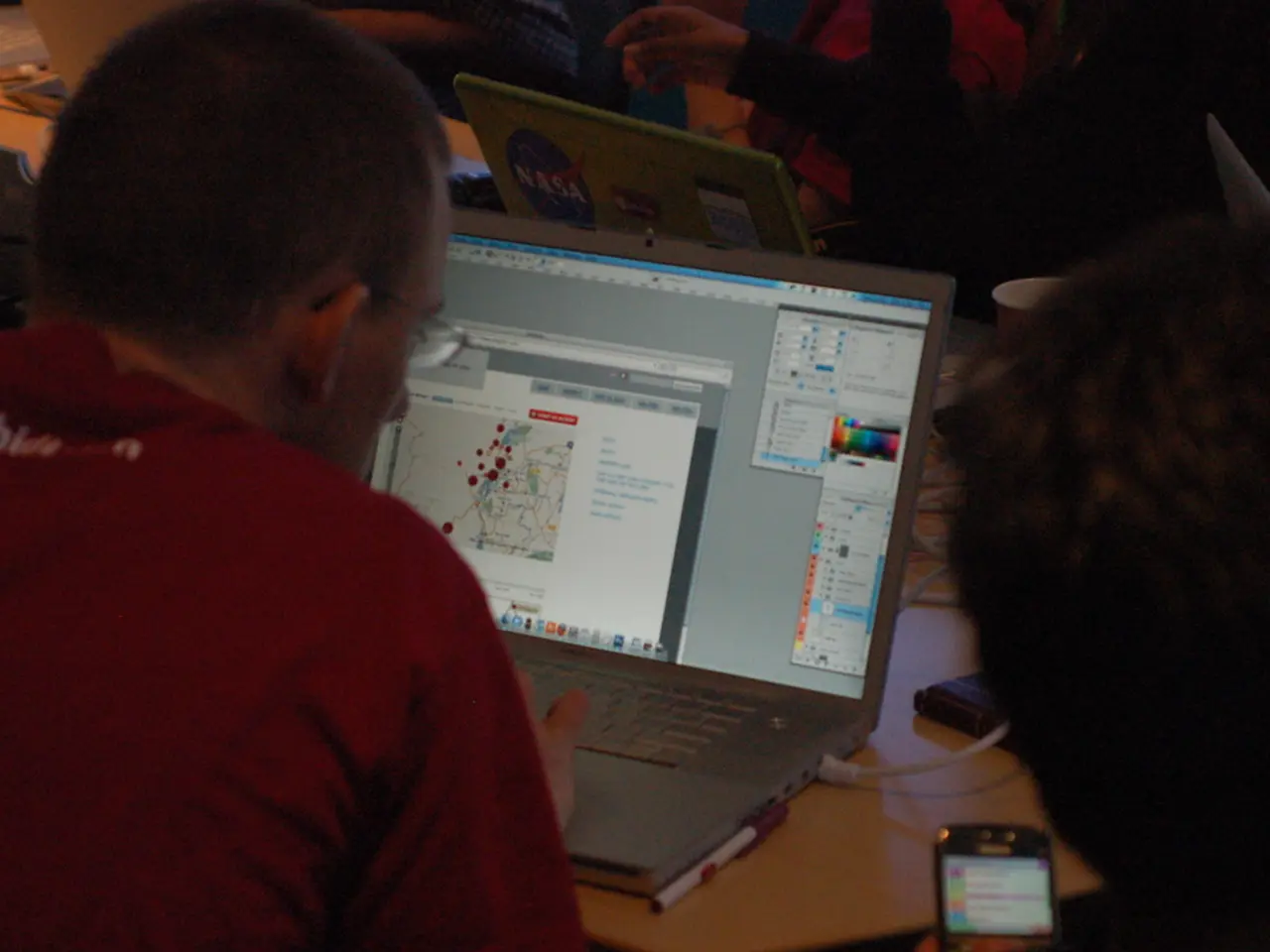Leaving your smartphone on the table poses potential risks. - Leaving the smartphone on the table instead of pocket or hand?
In recent years, a growing body of research has shed light on the negative effects of having a smartphone present during conversations and work. These studies highlight several issues that can impact our mental well-being, interpersonal relationships, and task focus.
Prof. Dr. Sven Lindberg from the University of Paderborn has stated that the continuous presence of a smartphone can have negative effects on attention, even when the device is not in use. The mere presence of a smartphone during a conversation or work can have a detrimental impact on productivity, making users work slower and less focused.
The small device can disrupt conversations or workflows, even if one is just quickly checking a message. A nearby smartphone can hinder the development of closeness in conversations, even when discussing deep topics. The presence of a smartphone, even when turned off, can still affect cognitive performance and productivity.
The "always-online" nature of smartphones allows pressures from work and family to intrude into private time via constant notifications, triggering generalized anxiety and stress responses, including physical symptoms like nausea. Excessive reliance on online interactions via smartphones tends to exclude offline relationships, resulting in loneliness and social alienation.
In conversations or caregiving contexts, smartphone presence causes distraction, impairing the development or maintenance of emotional safety and social skills. For example, parental distraction by phones adversely affects young children’s ability to form secure attachments, regulate emotions, and develop empathy.
At work or school, smartphones are a major source of distraction that undermines concentration and learning. Many educational policies are now limiting cellphone use to reduce distractions and improve mental health.
Studies show that the effect of a smartphone on individuals is greater than just a distraction; it can affect us even when it is simply nearby. The advice of experts is to keep the smartphone off the table and ideally out of the same room during conversations or work to build a personal relationship or focus.
The findings of a study conducted by Prof. Dr. Sven Lindberg and doctoral student Jeanette Skowronek at the University of Paderborn suggest that the mere presence of a smartphone can have negative effects on productivity and cognitive performance, regardless of any signs of addiction. In their experiment, they found that the mere presence of a smartphone during simulated video conferences negatively impacts productivity, focus, and task-switching, regardless of any signs of addiction.
In summary, the negative effects of smartphone presence during conversations or work stem from distraction, emotional disruption, social comparison, and anxiety related to constant connectivity. These impacts can degrade mental well-being, interpersonal relationships, and task focus. To build a personal relationship or work focused, one should consciously decide to physically distance oneself from the smartphone, even if one has the use of the device under control.
- To mitigate the negative impacts of smartphones on productivity and cognitive performance during conversations and work, it's advisable to adhere to both community policy and employment policy that discourage the presence of smartphones within these contexts.
- In addition to impeding productivity and focus, the presence of smartphones can also disrupt interpersonal relationships, as technological gadgets such as smartphones tend to hinder the development of closeness and emotional safety in conversations, even when discussing deep topics.




